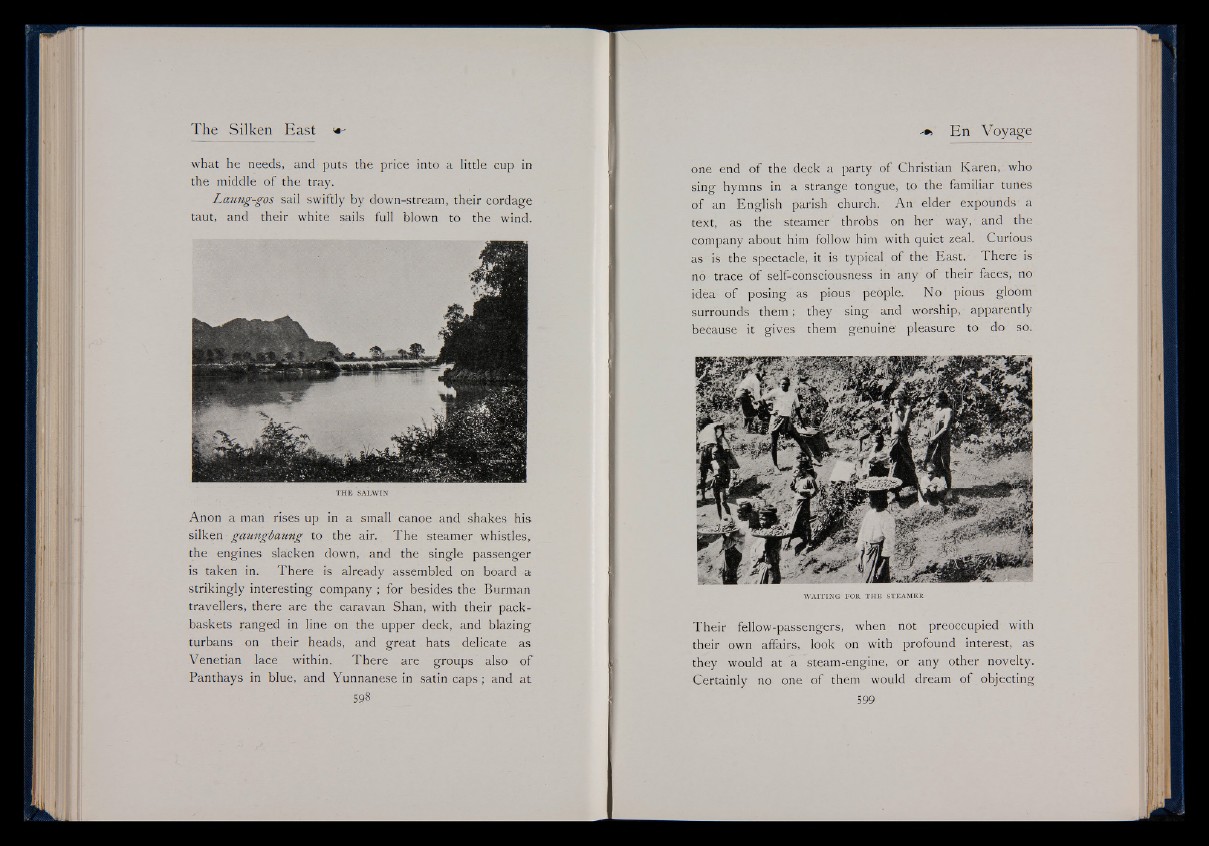
what he needs, and puts the price into a little cup in
the middle of the tray.
Laung-gos sail swiftly by down-stream, their cordage
taut, and their white sails full blown to the wind.
TH E SALWIN
Anon a man rises up in a small canoe and shakes his
silken gaungbaung to the air. The steamer whistles,
the engines slacken down, and the single passenger
is taken in. There is already assembled on board a
strikingly interesting company ; for besides the Burman
travellers, there are the caravan Shan, with their pack-
baskets ranged in line on the upper deck, and blazing
turbans on their heads, and great hats delicate as
Venetian lace within. There are groups also of
Panthays in blue, and Yunnanese in satin caps; and at
one end of the deck a party of Christian Karen, who
sing hymns in a strange tongue, to the familiar tunes
of an English parish; church. An elder expounds a
text, as the steamer throbs on her way, and the
company about him follow him with quiet zeal. Curious
as is the spectacle, it is typical of the East. There is
no trace of self-consciousness ’ in any of their faces, no
idea of posing as pious people. No pious gloom
surrounds them; they sing and worship, apparently
because it gives them genuine' pleasure to do so.
WAITING FOR TH E STEAMER
Their fellow-passengers, when not preoccupied with
their own affairs, look on with profound interest, as
they would at a. steam-engine, or any other novelty.
Certainly no one of them would dream of objecting